Wednesday 21 August 2013 at 3:00pm
IMET Seminars are generally not held during the summer months but there are exceptions. If interested in speaking on a Wednesday afternoon in the Summer, please contact us.
« July 2013 | Main | September 2013 »
IMET Seminars are generally not held during the summer months but there are exceptions. If interested in speaking on a Wednesday afternoon in the Summer, please contact us.
IMET Seminars are generally not held during the summer months but there are exceptions. If interested in speaking on a Wednesday afternoon in the Summer, please contact us.
IMET and Ocean Futures Society Proudly Present
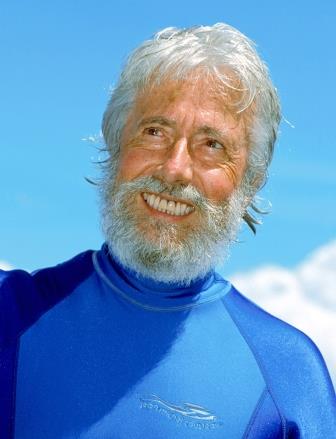 Jean-Michel Cousteau
Jean-Michel Cousteau
"The Great Ocean Adventure"
Wednesday, 9th October, 2013
VIP dinner: 5:00 PM
Lecture: 7:00 PM (general reception to follow)
Since first being “thrown overboard” by his father at the age of seven with newly invented SCUBA gear on his back, Jean-Michel has been exploring the ocean realm. The son of ocean explorer Jacques Cousteau, Jean-Michel has investigated the world’s oceans aboard Calypso and Alcyone for much of his life. Honoring his heritage, Jean-Michel founded Ocean Futures Society in 1999 to carry on this pioneering work.
His presentation, "The Great Ocean Adventure," will address the magnitude of challenges facing our oceans and fisheries and touch upon IMET’s work in developing one of the most innovative and environmentally sustainable marine aquaculture technologies today.
Ocean Futures Society, a non-profit marine conservation and education organization, serves as a “Voice for the Ocean” by communicating in all media the critical bond between people and the sea and the importance of wise environmental policy. As Ocean Future’s spokesman, Jean-Michel serves as an impassioned diplomat for the environment, reaching out to the public through a variety of media.
Mr. Cousteau has produced over 80 films, received the Emmy, the Peabody Award, the 7 d’Or, and the Cable Ace Award. In 1989, he became a syndicated columnist for the Los Angeles Times where his articles appeared in over sixty newspapers worldwide. Reaching millions of people globally through Ocean Futures Society, Jean-Michel continues to produce environmentally oriented adventure programs and television specials, public service announcements, multi-media programs for schools, web-based marine content, books, articles for magazines, newspaper columns, and public lectures.
The Institute of Marine & Environmental Technology (IMET) is home to one of the largest groups of scientists in the world addressing marine and environmental research through molecular approaches. Focusing on the sustainable use of natural resources and enhancement of human health, IMET is a joint University System of Maryland research institute capitalizing on the strengths of the University of Maryland Center for Environmental Science (UMCES), the University of Maryland, Baltimore County (UMBC) and the University of Maryland, Baltimore (UMB) in a state-of-the-art research facility located at Baltimore's Inner Harbor.
Registration is closed. Tickets to the lecture were $20.
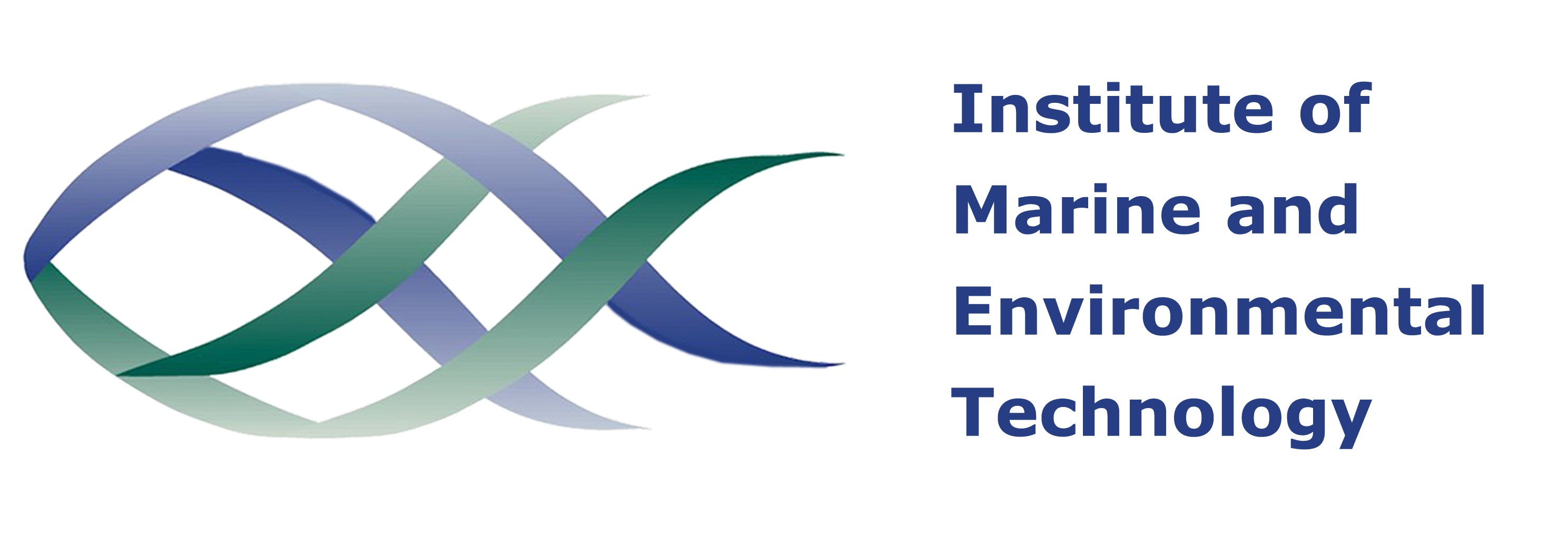
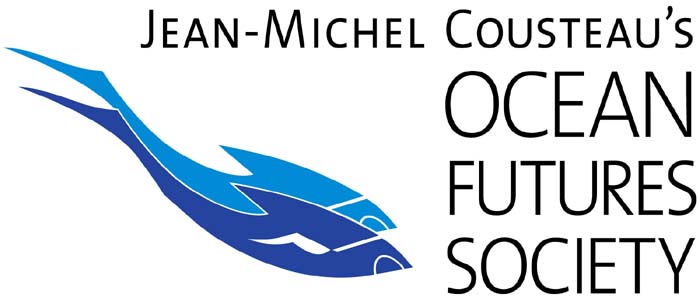
Baltimore Researchers Turn Some Carnivorous Fish Into Vegetarians
By: Darryl Fears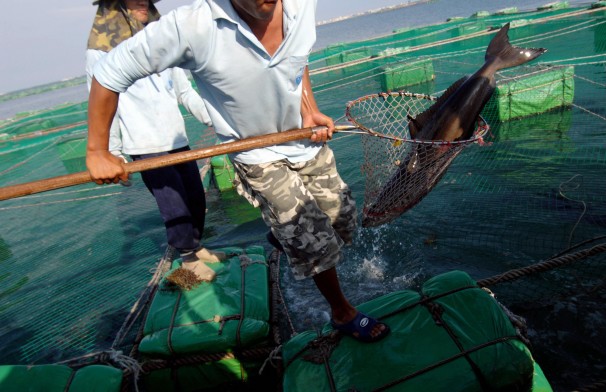
Photo by: Sam Yeh/AFP/Getty Images
Published: August 11, 2013
Cobia is a sleek and powerful fish that devours flesh and doesn’t apologize for it. Open its belly and anything might pop out — crab, squid, smaller fish, you name it.
Recently, three Baltimore researchers — Aaron Watson, Frederic Barrows and Allen Place — set out to tame this wild and hungry fish sometimes called black salmon. They didn’t want to simply domesticate it; hundreds of fish farmers have already done that. They sought to turn one of the ocean’s greediest carnivores into a vegetarian.
The researchers announced last week that they pulled off the feat at a laboratory in the Columbus Center in downtown Baltimore. Over the course of a four-year study, Watson said, they dabbled with mixtures of plant-based proteins, fatty acids and a powerful amino acid-like substance found in energy drinks until they came up with a combination that cobia and another popular farm fish, gilt-head bream, gobbled down.
The conversion of these carnivorous fish to a completely vegetarian diet is a first, according to the University of Maryland Center for Environmental Science, and a key to breaking a cycle in which the ocean’s stocks of small fish — menhaden, anchovies and sardines — are plundered by industrial fishing partly to provide fish feed to aquaculture, one of the fastest-growing economic sectors in the world.
“It would take the pressure off harvesting the menhaden fishery,” Place said, referring to the bony and oily little fish billed as the most important in the sea. Menhaden, caught off Virginia’s coast, feed a plethora of marine animals, including dolphin, swordfish and birds.
The research was published in this month’s issue of the journal Lipids and is supported by a paper published earlier in the Journal of Fisheries and Aquaculture. It’s part of a race to replace feed from wild-caught fish as the diet of choice for farm-raised fish, set in motion by the National Oceanic and Atmospheric Administration and the Department of Agriculture in 2007.
Feeding both farm fish and more than a billion humans from wild fisheries is environmentally unsustainable, according to NOAA and just about every nonprofit conservation organization that monitors oceans.
Fearing that menhaden are severely overfished by an industry that sells it worldwide for oil, animal feed and sport-fishing bait, the Atlantic States Marine Fisheries Commission in December sharply reduced the amount that can be harvested.
Aquaculture was once thought to be a solution to overfishing in the world’s oceans, lakes and rivers. After the explosion in the human demand for seafood, the need to feed farm fish started depleting the stocks aquaculture was supposed to save.
But there is a way for people to have abundant fish and eat them, too, said Michael Rust, aquaculture research program manager at NOAA’s Northwest Fisheries Science Center.
“All fish — carnivore, herbivore, and omnivore — require about 40 nutrients in the correct ratio,” Rust was quoted as saying on NOAA’s Web site. “It doesn’t matter to the health of the fish where the nutrients come from. By incorporating marine algae, fish processing trimmings, and a variety of plant products, we can formulate high quality fish feeds without relying on wild-caught fish.”
On 30th July 2013, The Marc Steiner Show featured an interview with Dr. Yonathan Zohar regarding ARC at IMET. Listen online here.
The Economy of Scales
A Baltimore lab aims to take the science of growing clean, healthy salt-water fish to the global marketplace
Article by: Van Smith
Photos by: Christopher Myers
Published July 24, 2013
 The wood-grilled whole dorado, at $34, is the highest-priced dish on the current menu at Pazo, the casually elegant restaurant in Fells Point in Baltimore. Executive chef Mario Cano Catalan gushes about the restaurant’s specimens of the high-value Mediterranean fish, whose market name is gilthead sea bream, a sparkling silver species with a band of yellowish gleam at its head.
The wood-grilled whole dorado, at $34, is the highest-priced dish on the current menu at Pazo, the casually elegant restaurant in Fells Point in Baltimore. Executive chef Mario Cano Catalan gushes about the restaurant’s specimens of the high-value Mediterranean fish, whose market name is gilthead sea bream, a sparkling silver species with a band of yellowish gleam at its head.
The ones Catalan prepares weigh a pound or a little over, he says, and after scaling and gutting them, he seasons them with crushed oregano and sea salt.
“They are cooked slowly,” Catalan explains, “at a medium temperature of about 400 degrees, and the juicy, moist meat gets a nice smoky flavor from cooking with its own juice  inside, and the skin gets super-crispy, which is excellent. The customers enjoy it very well.”
inside, and the skin gets super-crispy, which is excellent. The customers enjoy it very well.”
But here’s the catch: Pazo’s sea bream are not caught, nor are they from the Mediterranean. They come from a scientific laboratory in the basement of the Columbus Center downtown.
...
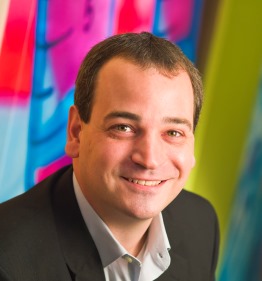 IMET is pleased to introduce Dr. Nick Hammond who joined the team in April, 2013 as IMET’s Assistant Director. Dr. Hammond's role will be to advance the mission of the Institute, in particular regarding technology transfer and economic development in the State of Maryland. Dr. Hammond co-founded Ablitech, Inc. in 2006 as its first CEO, and served as its Chief Technology Officer until becoming the Chief Science Officer in 2011. Hammond catalyzed Ablitech’s move to the University of Maryland BioPark in Baltimore, MD in January of 2012 and was instrumental in raising more than $2.8M from federal grants and contracts, foundations, angel investment, and state agencies for the development of Ablitech’s Versadel delivery technology for gene silencing. Hammond’s past research has involved drug design and development, drug delivery, polymers, gene silencing, basic cell research, and small animal models. Hammond has authored a number of scientific papers, presentations, and patents and has been honored as a National Science Foundation (NSF) IGERT Fellow, an American Foundation for Pharmaceutical Education (AFPE) Endowed Fellow, and a Trent Lott National Center of Excellence for Economic Development and Entrepreneurship Fellow. Hammond holds a PhD in Medicinal Chemistry from The University of Mississippi and a BS in Biology and Chemistry from Butler University.
IMET is pleased to introduce Dr. Nick Hammond who joined the team in April, 2013 as IMET’s Assistant Director. Dr. Hammond's role will be to advance the mission of the Institute, in particular regarding technology transfer and economic development in the State of Maryland. Dr. Hammond co-founded Ablitech, Inc. in 2006 as its first CEO, and served as its Chief Technology Officer until becoming the Chief Science Officer in 2011. Hammond catalyzed Ablitech’s move to the University of Maryland BioPark in Baltimore, MD in January of 2012 and was instrumental in raising more than $2.8M from federal grants and contracts, foundations, angel investment, and state agencies for the development of Ablitech’s Versadel delivery technology for gene silencing. Hammond’s past research has involved drug design and development, drug delivery, polymers, gene silencing, basic cell research, and small animal models. Hammond has authored a number of scientific papers, presentations, and patents and has been honored as a National Science Foundation (NSF) IGERT Fellow, an American Foundation for Pharmaceutical Education (AFPE) Endowed Fellow, and a Trent Lott National Center of Excellence for Economic Development and Entrepreneurship Fellow. Hammond holds a PhD in Medicinal Chemistry from The University of Mississippi and a BS in Biology and Chemistry from Butler University.
Title: “Nanocarrier platforms for targeted and controlled biomolecule delivery”
Speaker: Anjan Nan, Ph.D.
University of Maryland School of Pharmacy
Host: Nick Hammond, Ph.D.
NOAA-EPP Living Marine Resources Cooperative Science Center (LMRCSC) Summer 2013
Interns presented the results of their projects on Friday August 2 at IMET.
Bay Journal Highlights Smalls."
Learn more about the LMRCSC by visiting LMRCSC online.
This page contains all entries posted to Institute of Marine & Environmental Technology in August 2013. They are listed from oldest to newest.
July 2013 is the previous archive.
September 2013 is the next archive.
Many more can be found on the main index page or by looking through the archives.